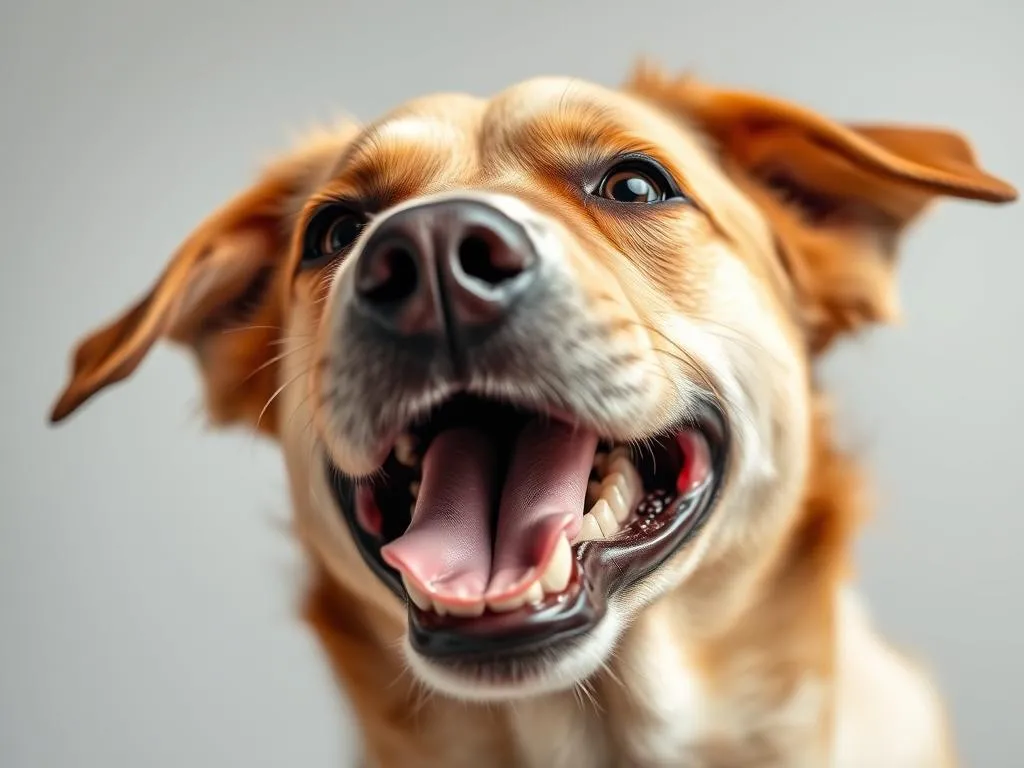
Introduction
Maintaining the health of our beloved canine companions is a crucial aspect of pet ownership. Just like humans, dogs can experience a variety of health issues that may manifest in numerous ways, one of which is through teeth chattering. This particular behavior can be puzzling for many pet owners, prompting the question: why does my dog chatter teeth? In this article, we’ll delve into the potential reasons behind this behavior, the importance of monitoring your dog’s actions, and the steps you can take to ensure your furry friend remains healthy and happy.
Understanding Dog Behavior
What is Teeth Chattering?
Teeth chattering in dogs can be defined as the rapid and involuntary movement of the jaw that causes the teeth to knock together. This behavior can occur in various situations, such as during moments of excitement, cold exposure, or even stress. Understanding the context in which your dog exhibits this behavior is essential for determining its underlying cause.
Common scenarios when dogs chatter their teeth may include:
- Encountering a cold environment
- Anticipating playtime or walks
- Responding to stressful situations, such as thunderstorms or loud noises
Importance of Observing Dog Behavior
Observing your dog’s behavior is vital, as changes in their actions can signal potential health issues. A dog’s behavior is often the first indicator of distress, discomfort, or illness. As a responsible pet owner, it is your duty to monitor these changes and consult a veterinarian if you notice anything unusual. Regularly observing your dog can help you identify when they are chattering their teeth and allow you to assess the situation accurately.
Common Reasons Dogs Chatter Their Teeth
Cold Weather or Temperature Sensitivity
One of the most common reasons a dog may chatter their teeth is due to cold weather or general temperature sensitivity. Dogs, especially small breeds or those with short coats, can be quite sensitive to changes in temperature. When they feel cold, their bodies may respond by shivering, which can lead to teeth chattering.
Signs that may indicate your dog is cold include:
- Shivering or trembling
- Curling up tightly
- Seeking warm spots or blankets
- Whining or vocalizing discomfort
Anxiety and Stress
Another prevalent cause of teeth chattering in dogs is anxiety or stress. Just like humans, dogs can experience anxiety due to various triggers, such as separation from their owner, loud noises, or unfamiliar environments. When anxious, dogs may display various behaviors, and teeth chattering can be one of them.
Common triggers for anxiety in dogs include:
- Thunderstorms or fireworks
- Changes in routine or environment
- Visits to the veterinarian
Dental Issues
Dental problems can also lead to teeth chattering in dogs. Conditions such as periodontal disease, tooth fractures, or dental abscesses can cause pain or discomfort, prompting your dog to chatter their teeth as a response. It’s essential to maintain your dog’s dental health, as poor dental hygiene can have severe consequences for their overall health.
Regular dental check-ups are crucial to detect and address any underlying dental issues. Signs of dental problems in dogs may include:
- Bad breath
- Difficulty eating or chewing
- Swollen gums or visible tartar
Neurological Disorders
In some cases, teeth chattering may indicate underlying neurological disorders. Conditions such as seizures or other neurological issues can manifest through unusual behaviors, including chattering. While not as common, it’s essential to be aware of the possibility.
Signs to look for that may indicate a neurological problem include:
- Loss of coordination or balance
- Unusual eye movements
- Changes in behavior or personality
Excitement or Anticipation
Excitement can also lead to teeth chattering in dogs. This behavior can be particularly common during moments of high energy, such as when a dog is about to go for a walk or play with their favorite toy. In these situations, the chattering may be a sign of eagerness and enthusiasm rather than a cause for concern.
Typical scenarios where this behavior is observed include:
- During playtime with other dogs
- Anticipating a treat or meal
- When greeting their owner after a long day
When to Be Concerned
Identifying Red Flags
While teeth chattering can be a normal behavior in certain contexts, there are red flags that pet owners should be aware of. If your dog is chattering their teeth accompanied by other concerning symptoms, it may be time to consult a veterinarian. Symptoms that require immediate attention include:
- Lethargy or decreased energy levels
- Loss of appetite or difficulty eating
- Excessive drooling or oral bleeding
- Vomiting or diarrhea
Consulting a Veterinarian
If you’re worried about your dog’s teeth chattering, it’s essential to consult a veterinarian. Preparing for a vet visit can help ensure you get the most out of your appointment. Here are some tips on how to prepare:
- Keep a record of when the chattering occurs and any accompanying symptoms.
- Bring notes about your dog’s diet, behavior changes, and any recent events that may have triggered stress.
- Prepare a list of questions to ask your veterinarian, such as potential causes and recommended treatments.
Diagnosis and Treatment
Diagnostic Procedures
When you take your dog to the veterinarian regarding teeth chattering, they may perform several diagnostic procedures to determine the underlying cause. Common tests or examinations may include:
- Physical examination to assess overall health
- Dental examination to check for any oral issues
- Blood tests or imaging studies, if necessary
The importance of history-taking cannot be overstated; providing your veterinarian with detailed information about your dog’s behavior and health history can significantly aid in diagnosis.
Treatment Options
Once a diagnosis is made, your veterinarian will recommend treatment options tailored to your dog’s specific needs. Possible treatments for the different causes of teeth chattering may include:
- Cold Weather: Providing warm bedding or clothing for your dog during cold months.
- Anxiety: Behavioral training, anxiety-reducing products, or medication if recommended by your vet.
- Dental Issues: Professional dental cleaning or procedures to address any dental problems.
- Neurological Disorders: Depending on the diagnosis, medication and monitoring may be necessary.
It’s essential to weigh home remedies against professional treatments. While some home remedies may provide temporary relief, always consult your veterinarian before trying anything new.
Preventive Measures
Regular Vet Check-Ups
Routine veterinary check-ups are essential in maintaining your dog’s overall health. Regular visits can help identify potential health issues before they become severe. The recommended frequency for vet visits typically includes:
- Annual check-ups for healthy adult dogs
- Semi-annual visits for senior dogs or those with chronic health issues
- More frequent visits if your dog exhibits concerning symptoms
Maintaining Dental Health
Keeping your dog’s teeth healthy is crucial in preventing dental issues that could lead to teeth chattering. Here are some tips for maintaining your dog’s dental health:
- Brush your dog’s teeth regularly with canine toothpaste.
- Offer dental chews that help reduce plaque.
- Schedule professional dental cleanings as recommended by your veterinarian.
Managing Anxiety
If your dog experiences anxiety, implementing techniques to reduce stress can be beneficial. Techniques for reducing anxiety in dogs may include:
- Establishing a consistent routine to create a sense of security.
- Providing a safe space for your dog to retreat during stressful situations.
- Utilizing calming products, such as anxiety wraps or pheromone diffusers.
Behavioral training can also be effective in managing anxiety and helping your dog feel more secure.
Conclusion
In summary, understanding why your dog may chatter their teeth is an important aspect of dog health care. From environmental factors like cold temperatures to health issues like dental problems or anxiety, there are various reasons behind this behavior. As a responsible pet owner, it’s crucial to monitor your dog’s behavior closely and seek veterinary care when necessary. By being proactive in your pet’s health care, you can ensure that they live a happy, healthy life.
Taking the time to observe changes in your dog’s behavior and understanding the potential causes of teeth chattering can lead to timely interventions and better overall health for your furry friend. Remember, your vigilance is key to keeping your dog healthy and happy.
This article serves as a comprehensive guide to understanding and addressing the behavior of teeth chattering in dogs, providing valuable insights for pet owners.









